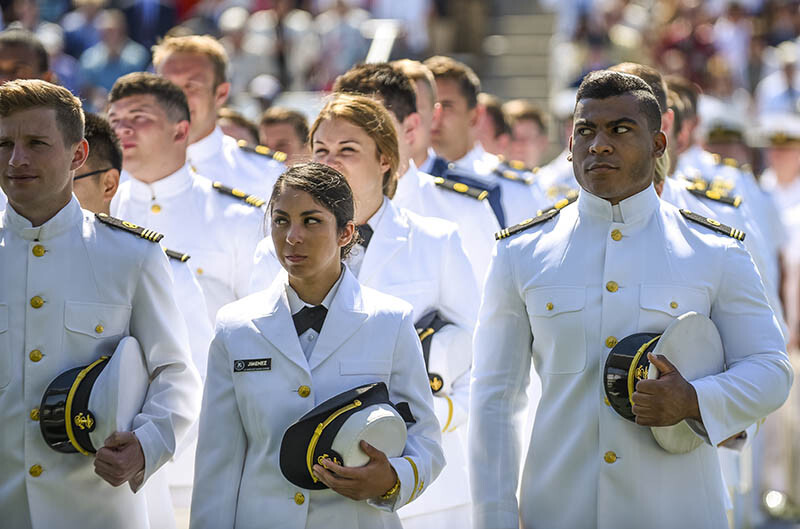The U.S. Department of Transportation (DOT) and the Maritime Administration (Marad) released new safety standards to govern the U.S. Merchant Marine Academy’s (USMMA) Sea Year. The six state maritime academies have confirmed their support for these standards.
In addition, new policies and procedures will be implemented at USMMA in Kings Point, N.Y., to support cadets while they are at sea. With implementation of these standards and policies, USMMA anticipates lifting the current pause on Sea Year on Dec. 22.
USMMA’s Sea Year training program, which typically consists of a sailing period during a cadet’s sophomore year and a longer sailing period during a cadet’s junior year, was paused temporarily in early November to ensure the development and implementation of measures to help prevent sexual assault and sexual harassment (SASH), and foster a safer, more welcoming and inclusive culture. Sea Year training enables cadets to obtain the training days at sea necessary to become eligible for a U.S. Coast Guard merchant officer license examination.
“The plan we are launching today represents the collective commitment of DOT, Marad, USMMA, and the six State Maritime Academies to strengthen safety for cadets aboard commercial vessels, and to support an inclusive culture that prioritizes preventing sexual assault and harassment and supporting survivors," said Acting Maritime Administrator Lucinda Lessley. “The plan is an initial step, and all parties are committed to continuing to review this program frequently, and to make improvements whenever needed to ensure the safety and success of cadets.”
Since the pause was announced, DOT, Marad, and USMMA have conducted a detailed review of both the existing Sea Year requirements for commercial carriers as well as the policies and procedures in place at USMMA to support cadets while they are at sea. DOT, Marad, and USMMA have also sought recommendations from a wide range of stakeholders — including industry, labor, advocacy groups working to combat sexual assault and harassment, Congress, and Federal agencies, including the U.S. Coast Guard, as well as USMMA midshipmen and alumni — regarding actions to strengthen safety at sea for cadets.
“Safety at sea requires teamwork both aboard vessels and between the vessel and shoreside management. Workplace climates which enable sexual offenses erode trust and teamwork and put mariners’ lives at risk,” Rear Admiral John Mauger, Coast Guard Assistant Commandant for Prevention Policy, said in a statement announcing the resumption of Sea Year. “Sexual assault is a crime. When they happen aboard a U.S. vessel it must be reported to the Coast Guard. Coast Guard investigators will respond, and we will hold offenders accountable.”
Two documents were released recently:
• The Every Mariner Builds a Respectful Culture (EMBARC) program, administered by Marad, which enumerates more than 30 new safety measures that commercial carriers will be required to meet before they can be enrolled in the EMBARC program and approved to carry cadets. The EMBARC program also sets forth a process and protocols for ensuring continuous review and improvement.
• The second document enumerates new policies and procedures that will be implemented at USMMA to support implementation of the EMBARC program and to increase the support provided to cadets while they are at sea. Among other new policies and procedures, USMMA will provide additional pre-Sea Year training and a satellite phone that enables cadets to have voice communication with family and friends as well as Academy personnel and other support resources while embarked at sea. USMMA has also recently implemented a new amnesty policy that ensures that survivors who report sexual assault, as well as intervening bystanders and witnesses, will not be subject to discipline for a violation of the alcohol or drug use policy occurring at or near the time of the commission of the assault.
“We fully support the Sexual Assault and Sexual Harassment (SASH) Prevention Mandatory Minimum Standards articulated in the Every Mariner Builds a Respectful Culture (EMBARC standards) for U.S. flag Safety of Life at Sea (SOLAS) vessels engaged in international trade,” stated RADM Bill Brennan, chairman of the Consortium of State Maritime Academies. “We believe these standards will help ensure a safe and healthy work environment for our cadets onboard these vessels.”




